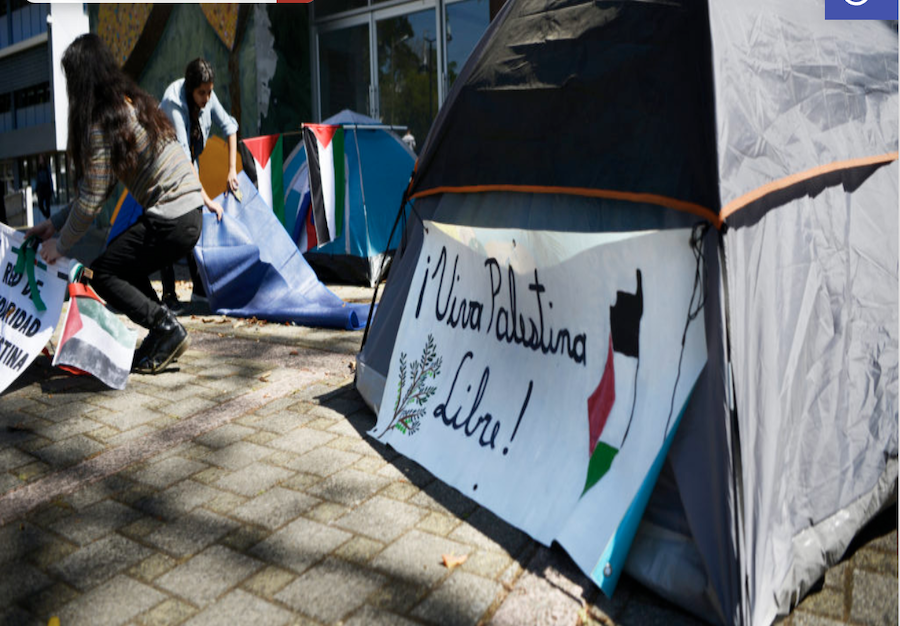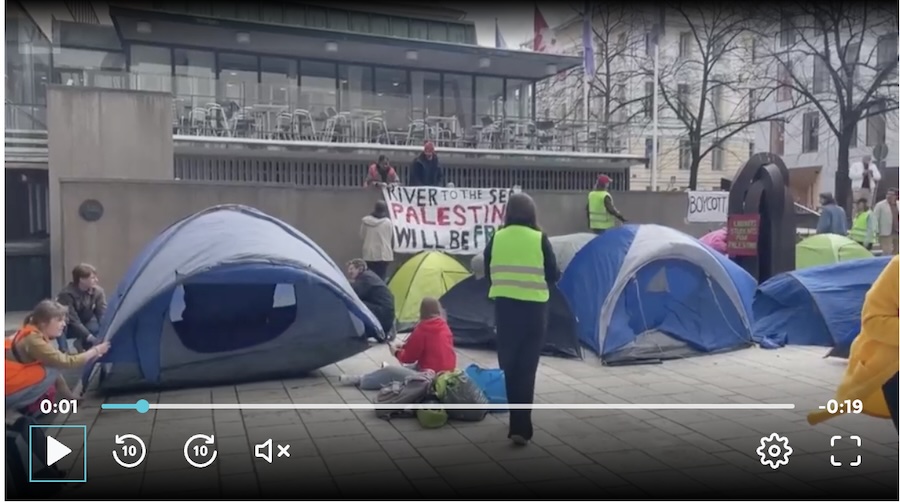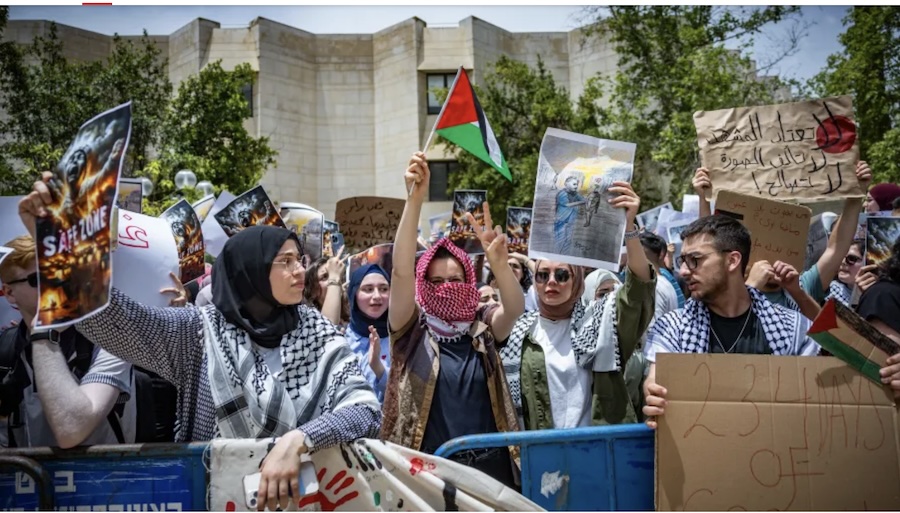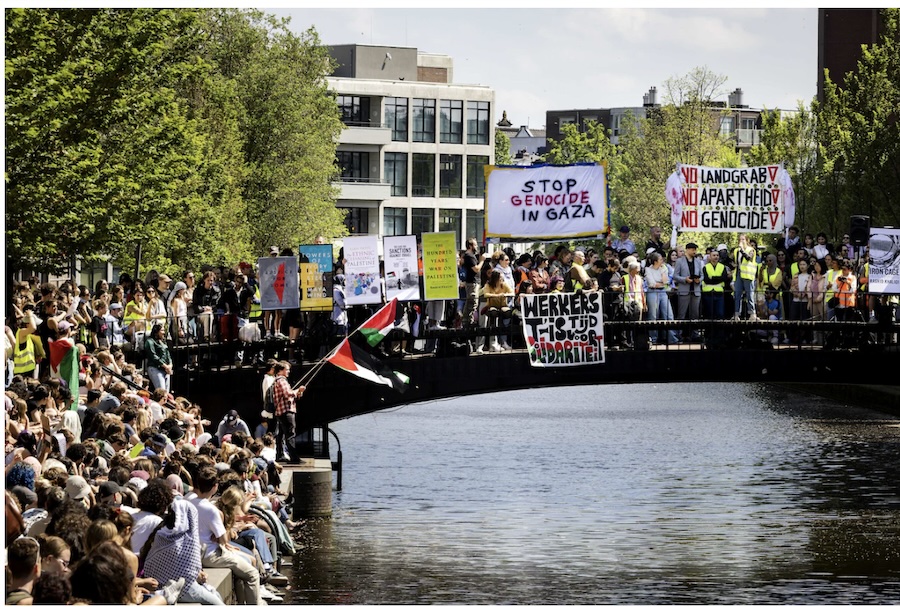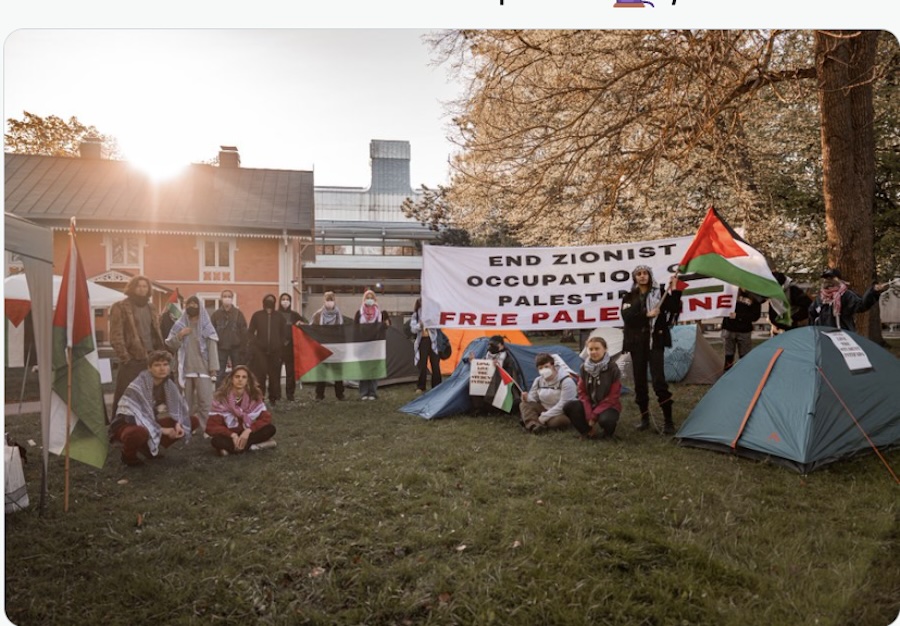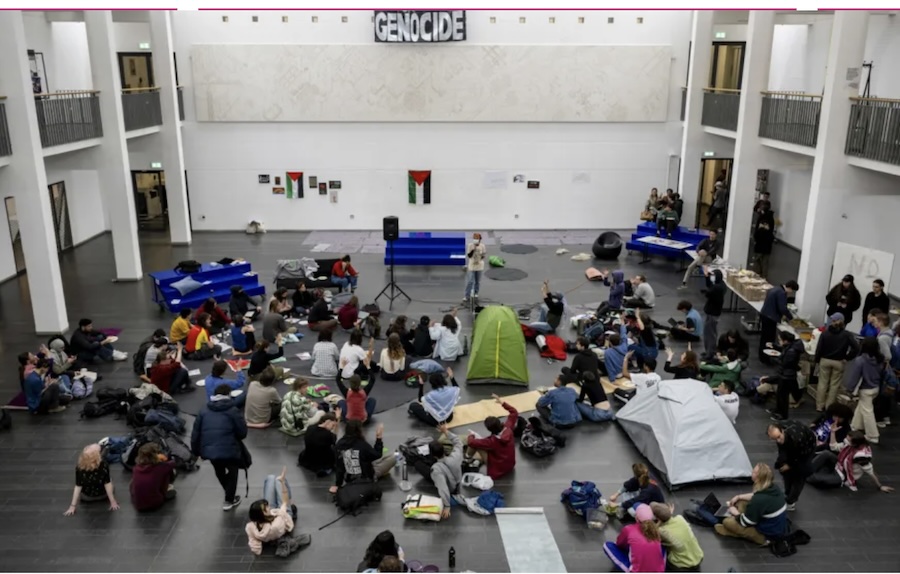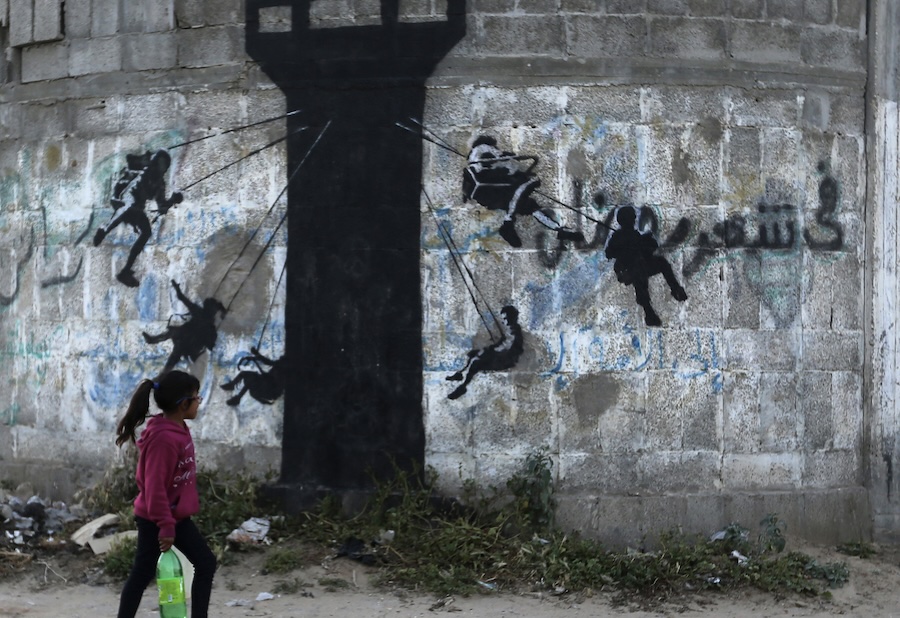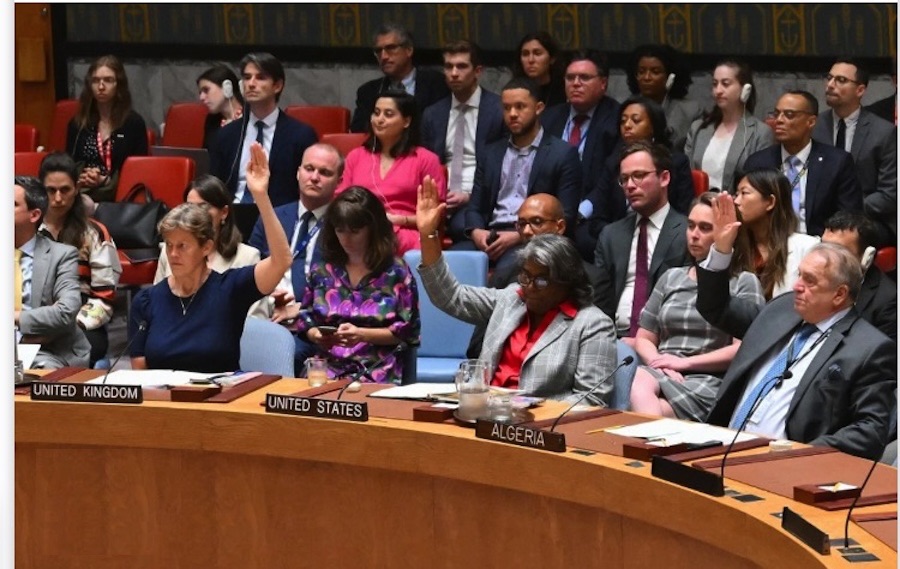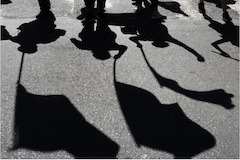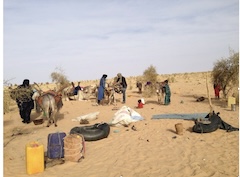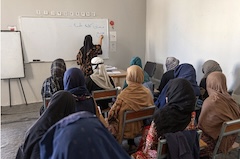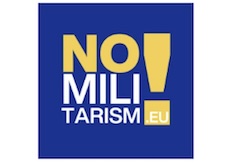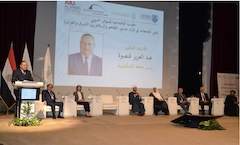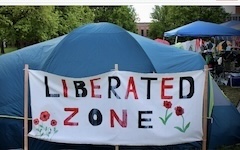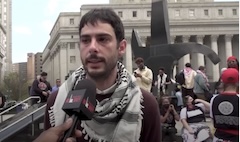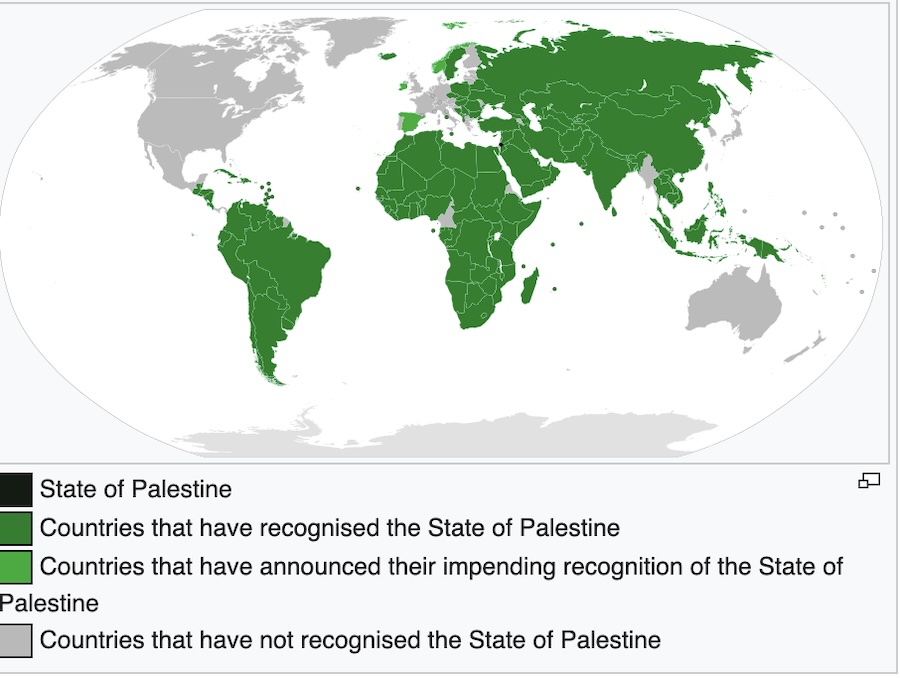FREE FLOW OF INFORMATION
A news release from the United Nations
The UN General Assembly convened again in New York on Friday (May 10) for an emergency special session on the Gaza crisis and overwhelmingly passed a resolution which upgrades Palestine’s rights at the world body as an Observer State, without offering full membership. It urged the Security Council to give “favourable consideration” to Palestine’s request.

What does the resolution mean?
Here’s a quick recap of what this means: by adopting this resolution the General Assembly will upgrade the rights of the State of Palestine within the world body, but not the right to vote or put forward its candidature to such organs as the Security Council or the Economic and Social Council (ECOSOC).
Granting Palestinian membership requires a recommendation from the Security Council. At the same time, the Assembly determines that the State of Palestine is qualified for such status and recommends that the Security Council “reconsider the matter favourably”.
(Editor’s note: The negative vote of the United States on this resolution and their remarks quoted below suggest that they will continue to veto any resolution for UN membership of Palestine at the Security Council, as they did most recently on April 18).
None of the upgrades in status will take effect until the new session of the Assembly opens on 10 September.
Here are some of the changes in status that Palestine will have a right to later this year:
1. To be seated among Member States in alphabetical order
2. Make statements on behalf of a group
3. Submit proposals and amendments and introduce them
4. Co-sponsor proposals and amendments, including on behalf of a group
5. Propose items to be included in the provisional agenda of the regular or special sessions and the right to request the inclusion of supplementary or additional items in the agenda of regular or special sessions
6. The right of members of the delegation of the State of Palestine to be elected as officers in the plenary and the Main Committees of the General Assembly
7. Full and effective participation in UN conferences and international conferences and meetings convened under the auspices of the General Assembly or, as appropriate, of other UN organs
4:59 PM
Saudi Arabia: Re-establish the truth
Saudi Arabian Ambassador Abdulaziz Alwasil recalled General Assembly resolutions adopted over the years that reaffirmed the rights of the Palestinian people, including their right to self-determination.
“The resolution presented today is fully in line with those resolutions. It seeks to implement the will of the international community and contribute to building true peace in the Middle East based on the two-State solution,” he said.
“It is high time for the international community to re-establish the truth because the world can no longer ignore the suffering of the Palestinian people that has lasted for decades,” he added.
Ambassador Alwasil further noted Israel, the occupying power, has perpetrated “all sorts of crimes” against Palestinian people, scorning international law.
“Israel is convinced that they are above these resolutions and that they enjoy a certain level of immunity…which explains their ongoing hostile and brutal policies,” he said.
He highlighted the dire situation in Rafah, the last refuge for the Palestinian people which was also densely populated by those displaced from elsewhere and called he for a strong international position to put an end to the Israeli practices in Gaza.
Concluding his statement, the Ambassador expressed Saudi Arabia’s commitment to supporting the right of Palestinian people to self-determination and to build their own independent State within the 1967 borders with East Jerusalem as its capital, in line with relevant resolutions.
4:43 PM
China: Resolution reflects the will of the international community
Ambassador FU Cong of China said that Palestine should have the same status as Israel and that Palestinian people should enjoy the same rights as Israeli people.
“It is the common responsibility of the international community to support and advance the process of Palestinian independent Statehood, and provide strong support for the implementation of the two-State solution and a lasting peace in the Middle East,” he said.
He further noted that on the Palestinian-Israeli issue, the United States repeatedly used its veto “in an unjustified attempt” to obstruct the international community’s efforts to correct the “historical injustice long visited on Palestine”.
“It is not commensurate with the role of a responsible major country,” he said.
He also recalled the overwhelming support for the General Assembly resolution, adopted earlier in the day, reaffirming the right of Palestinian people to self-determination and recommending that the Security Council reconsider favourably its application to join the United Nations.
“China welcomes this historic resolution, which reflects the will of the international community,” Ambassador Fu said.
“We believe that the special modalities adopted within the limits permitted by the UN Charter will enable the international community to listen more adequately to the voice of Palestine and help it to talk and negotiate with Israel on a more equal footing.”
3:04 PM
Assembly President Francis resumed the meeting, with about 72 speakers left to take the floor. The spokesperson for the General Assembly announced earlier in the day that due to the number of remaining speakers, the meeting will likely continue on Monday.
1:07 PM
With the last speaker for the morning having delivered their statement, the President of the General Assembly adjourned the meeting. It will reconvene at 3 PM New York time.
1:00 PM
Switzerland: Ceasefire urgently needed
Swiss Ambassador Pascale Christine Baeriswyl explained that her country’s abstention from the vote was in line with its position at the Security Council last month.
“We felt that in view of the great instability prevailing in the region, this stage was not conducive to improving the situation,” she said.
“Without opposing it, we believe it would be preferable to consider admitting Palestine as a full member of the United Nations at time when such a step would insert itself in the logic of emerging peace,” she added, noting that such admission would have to follow the procedures enshrined in the UN Charter.
She also voiced Switzerland’s firm support to the two-State solution, stating that only a negotiated solution in which two States – Israel and Palestine – live side by side in peace and security can lead to lasting peace.
Ambassador Baeriswyl also voiced deep concern over the catastrophic situation of civilians in the ongoing conflict in Gaza, stating that it could worsen further in the event of a major Israeli military offensive in Rafah.
“Such a prospect is unacceptable, and Switzerland reaffirms its opposition to such an operation,” she said, emphasising the need to ensure protection of humanitarians and respect for international humanitarian and human rights laws.
In conclusion, she called for an immediate ceasefire.
“Safety of civilians must be ensured. All hostages must be released immediately and unconditionally, and safe, rapid and unhindered access for humanitarian aid must be allowed via all crossing points.”
12:10 PM
Firmly committed to two-State solution: UK
Barbara Woodward, Ambassador of the United Kingdom, said that her country remains “firmly committed” to the two-State solution that guarantees security and stability for both the Israeli and the Palestinian people.
“We are abstaining from this resolution because we believe the first step towards achieving this goal is resolving the immediate crisis in Gaza,” she said, emphasising that the fastest way to end the conflict is “to secure a deal which gets the hostages out and allows for a pause in the fighting”.
“We must then work together to turn that pause into a sustainable, permanent ceasefire.”
She added that “setting out the horizon” for a Palestinian State should be one of the vital conditions from moving from a pause in fighting to a sustainable ceasefire.
“Recognising a Palestinian State, including at the UN, should be part of that process,” she said.
Ambassador Woodward also noted that the UK remains deeply concerned about the prospect of a major operation in Rafah and that it will not support such an act, unless there is a “very clear plan” on protecting civilians as well as their access to aid and medical care.
“We have not seen that plan, so in these circumstances, we will not support a major operation in Rafah,” she said.
11:58 AM
France: High time for political solution
French Ambassador Nicolas de Rivière said his country voted in favour of the resolution, noting also the clarifications provided in the text on the right to vote and the right to be elected, which are the prerogatives of Member States alone.
“France recalls that the procedure for admitting a new Member State is defined by the UN Charter, and it must not be circumvented,” he said.
He also noted that France is in favour of the admission of Palestine as a full member of the Organization, which is why it voted in favour at the Security Council last month.
Reiterating his country’s condemnation of the terrorist attacks by Hamas and other groups on 7 October, Ambassador de Rivière stated France’s demand for a ceasefire and release of all hostages.
“The offensive that has started in Rafah risks causing numerous victims and displacing people at a time where nowhere can be deemed safe today in Gaza. There is further risk of disrupting delivery of aid,” he said, expressing his country’s opposition to the military operation.
“All parties must do everything they can to protect civilians and guarantee access for humanitarian aid. It is high time to mobilise for a political solution,” he added.
(continued in right column)
Question(s) related to this article:
What is the United Nations doing for a culture of peace?
Presenting the Palestinian side of the Middle East, Is it important for a culture of peace?
(continued from left column)
11:46 AM
Statehood must be negotiated: US
Explaining the US’s negative vote, Ambassador Robert Wood said that it did not reflect opposition to Palestinian statehood.
“We have been very clear that we support it and seek to advance it meaningfully. Instead, it is an acknowledgement that statehood will come from a process that involves direct negotiations between the parties,” he said.
“There is no other path that guarantees Israel’s security and future as a democratic Jewish State. There is no other path that guarantees Palestinians can live in peace and dignity in a State of their own,” he added.
He further expressed the US commitment to intensifying its engagement with Palestinians and the rest of the Middle East region to advance a political settlement that will create a path to Palestinian statehood and subsequent membership in the UN.
“This resolution does not resolve the concerns about the Palestinian membership application raised in April in the Security Council…and should the Security Council take up the Palestinian membership application as a result of this resolution, there will be a similar outcome,” he said.
11:24 AM
Draft resolution passed overwhelmingly
The vote is in. It has passed overwhelmingly with 143 countries in favour, nine against and 25 abstaining.
11:22 AM
The Assembly just voted to pass the draft resolution as long as two thirds agree.
11:18 AM
Pakistan: Resolution vote will determine strong support
Ambassador Munir Akram of Pakistan said there will come a day when Israel will be held accountable for the crimes committed against Palestinians, especially in Gaza.
The insults hurled today are “the arrogance of the aggressor” reflecting the impunity of the occupier, he said, explaining his delegation’s position ahead of the vote on the draft resolution.
He also expressed hope that the international community will appropriately respond in that regard.
The Ambassador underscored that the resolution’s adoption will determine the widespread support for Palestine to be accorded full UN membership.
11:05 AM
Russia: A moral duty
The Assembly is now preparing to vote on the draft resolution.
Before that, some countries are exercising their right to make statements before the vote, starting with Russia’s Ambassador Vassily Nebenzia.
He is criticising the US, saying that the resolution is complicated because it is attempting to advance Palestinian membership as far as possible without provoking another veto from Washington on full membership.
He said Palestine deserves nothing less than full membership at the UN.
“It is the moral duty of everyone,” he said.
“Only full-fledged membership will allow Palestine to stand alongside other members of the Organization and enjoy the rights that this status implies.”
10:55 AM
Israel: Extra benefits for Palestine would appease terrorists
Israel’s Ambassador Gilad Erdan said that after Hitler’s rise to power, the Nazis had sought to annihilate the Jewish people and all those they deemed sub-human, but the forces of good fought to return peace to the world, and the UN was founded to ensure that such tyranny never raised its head again.
“Today, you are doing the opposite…welcoming a terror State into its ranks,” he said.
“You have opened up the United Nations to modern-day Naziism. It makes me sick.”
The terrorist group Hamas controls Gaza and has taken over areas of the West Bank, he said, holding up a poster showing Hamas’s leader, who he described as “a terrorist diplomat whose stated goal is Jewish genocide”.
“Today, you have a choice between weakness and fighting terror,” he said, adding that the UN is appeasing “murderous dictators” and destroying the UN Charter. “This day will go down in infamy.”
In closing, he held up a mini portable electric document shredder and inserted the cover of the UN Charter.
10:48 AM
Palestinian flag ‘flies high and proud’
Riyad Mansour, Permanent Observer of the observer State of Palestine, recounted the devastating impacts of the ongoing war in Gaza, with over 35,000 Palestinians killed, a further 80,000 injured and over two million displaced.
“No words can capture what such loss and trauma signify for Palestinians, their families, their communities and for our nation as whole,” he said.
He added that the Palestinians in Gaza have been pushed to the “very edge” of the Strip “to the very brink of life” with “bombs and bullets haunting them”.
Mr. Mansour highlighted that despite the attacks and destruction, the flag of Palestine “flies high and proud” in Palestine and across the globe, becoming a “symbol raised by all those who believe in freedom and its just rule”.
‘Lives cannot be restored’
“It is true that we will not disappear, but the lives lost cannot be restored,” he stated.
The Permanent Observer said people have to make a decision: stand by the right of a nation to live in freedom and dignity on its ancestral land, standing with peace and recognising the rights of Palestinians or they can stand on the sidelines of history.
Mr. Mansour said after holding observer status for 50 years, “we wish from all those who invoke the UN Charter to abide by the right of the Palestinian people to self-determination guaranteed by the Charter.”
“A ‘yes’ vote is a vote for Palestinian existence; it is not against any State, but it is against attempts to deprive us of our State,” he added, stating that it would be an investment in peace and empowering the forces of peace.
10:29 AM
Security Council must heed global call for Palestinian statehood: UAE
On behalf of the Arab Group, Mohamed Issa Hamad Mohamed Abushahab, Permanent Representative of the United Arab Emirates to the UN, introduced the draft resolution, saying it recommends that the Security Council reconsider Palestine’s full UN membership application.
“Today marks a defining moment,” he said.
The State of Palestine has demonstrated that it deserves full membership in the international community by acceding to international treaties, adhering to the UN Charter and meeting requirements of statehood. In addition, more than 140 countries now recognise Palestine as a State, he said.
Voting for the resolution amid the ongoing conflict would support the two-State solution to the crisis, he said, adding that the Security Council must respond to the will of the international community.
Vote to take place at 11:00 AM
After delivering his statement, the UAE Ambassador called on the Assembly to vote on the draft at 11:00 AM New York time.
Members agreed to do so and would afterwards resume the debate.
10:17 AM
Middle East on course for ‘full-scale catastrophe’, warns General Assembly President Dennis Francis
Mr. Francis said from the podium of the Assembly Hall that the Israel-Palestine crisis was the original crisis before the world body when it was founded in 1946.
Peace has remained elusive, and today has become an untenable situation that is deteriorating “at an alarming speed”, he told delegates.
This is “bringing countless innocent victims into its deadly fold and pushing the region further to the brink of full-scale catastrophe”.
He urged the international community to not look away from the dire situation that has unfolded since the 7 October terror attacks and the ensuing Israeli devastation of Gaza.
End the scourge of war
“Today, let us remember the legacy from which we hail. We stand proudly upon the shoulders of those who, many decades ago, recognised their ultimate responsibility to forge a peace that will banish the scourge and terror of war,” he urged.
“I therefore call upon the membership to purposely assess the situation before us, with nothing else in mind but a commitment to peace as our utmost ambition,” he said.
He called upon the parties to the conflict, supported by nations with leverage, to urgently come to an agreement on a ceasefire to bring to an end to the suffering of countless people and secure the release of all hostages.
“We must believe in the essential goodness of others,” he said, and “in the understanding that no problem of human relations is insoluble”, calling on them to help bring lasting peace, save lives and end the violence.
10:14 AM
He’s inviting the Assembly to recognise the fact that some members are in arrears with their mandatory contributions. If you don’t pay up, you lose your vote. Those are the rules. But, there are exceptions that have been made, including today.
10:12 AM
The President of the General Assembly Dennis Francis has just gavelled in the resumed session on the Gaza crisis.
09:55 AM
Aid operations have come to a standstill since the start of the military’s ground operation in Rafah this week, with an estimated 100,000 Palestinians displaced once again in a highly fluid situation, according to humanitarians.
The Assembly is also expected to vote on a draft resolution, co-sponsored by a group of countries, concerning the status of the observer State of Palestine at the United Nations.
Read our explainer on Palestine’s status at the UN here.
The draft resolution follows the veto cast by United States at the Security Council on 18 April, which blocked Palestine’s admission as a full UN Member State. That draft resolution, submitted by non-permanent Council member Algeria, had received 12 votes in favour, with Switzerland and the United Kingdom abstaining.
– – – – – –
If you wish to make a comment on this article, you may write to coordinator@cpnn-world.org with the title “Comment on (name of article)” and we will put your comment on line. Because of the flood of spam, we have discontinued the direct application of comments.





